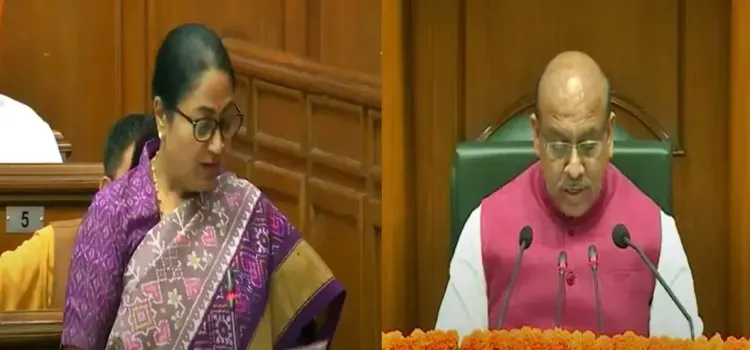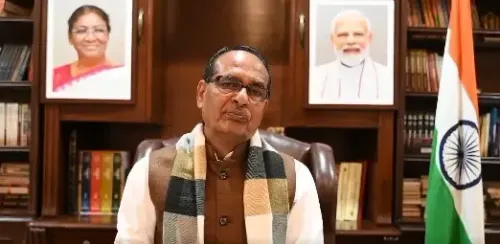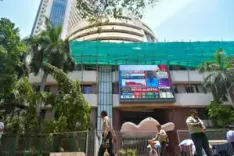Delhi Assembly Embraces Digital Shift with Budget App and iPads for Legislators; CAG Report on DTC Presented

Synopsis
Key Takeaways
- Delhi Assembly initiates a paperless initiative with iPads for MLAs.
- Budget documents are available on the Delhi Budget App.
- CAG report on DTC shows significant financial losses.
- The DTC's losses increased drastically over recent years.
- Plans announced for the introduction of 2,000 Electric Buses.
New Delhi, March 24 (NationPress) The Delhi Assembly has embarked on its journey towards a paperless work environment with Speaker Vijender Gupta announcing the provision of new iPads for all legislators and the uploading of all documents pertaining to Budget 2025-26 on the Delhi Budget application.
“I would like to inform all members that all documentation related to the Budget will be accessible via the Delhi Budget App. To facilitate this, all members will receive new iPads that can be collected during the lunch break,” stated the Speaker.
This announcement was met with enthusiastic applause from the members.
Speaker Gupta highlighted that MLAs can access the Budget documents by simply clicking on the Budget App, which is also available for download on the Playstore for their smartphones.
In addition, Delhi Chief Minister Rekha Gupta tabled a CAG report on the financial performance of the Delhi Transport Corporation for the year 2024.
Copies of the CAG report were distributed to members for discussion within the House.
The central auditor's report on the DTC reveals significant financial losses for the public transporter, which has been providing free rides to women for the past decade while struggling to replace its polluting, old vehicles with e-buses.
The CAG report indicates that the DTC’s losses surged by Rs 35,000 crore, escalating from Rs 25,300 crore in 2015-16 to nearly Rs 60,750 crore by 2021-22.
Furthermore, the report highlights the DTC’s inability to control losses, achieve profitability, or modernize its fare collection and security systems.
The key audit findings in the Performance Audit Report titled ‘Functioning of Delhi Transport Corporation (DTC)’ include a lack of any Business Plan or Perspective Plan, delays in bus procurement despite an increasing number of aging buses in the fleet, low fleet utilization and productivity, inadequate route planning, a non-functional Automatic Fare Collection System, and uncollected dues.
Regarding the decline in the DTC fleet, the report noted, “From 2015 to 2023, the Corporation's fleet decreased from 4,344 buses (2015-16) to 3,937 buses (2022-23).”
“The Corporation could only acquire 300 Electric Buses (EBs) during 2021-22 and 2022-23 despite having available funds from the Government of the National Capital Territory of Delhi. There were delays in adding EBs to the fleet, for which a penalty of Rs 29.86 crore for late delivery was not imposed on the operators,” it stated.
The report further revealed, “The proportion of low floor overaged buses in the Corporation increased from 0.13 percent (five buses) to 17.44 percent (656 buses) during 2015-22, and surged to 44.96 percent (1,770 buses) as of March 31, 2023, of its total fleet. This percentage of overaged buses is expected to rise further if the Corporation does not take genuine steps to procure or add new buses.”
The critical observations from the CAG arrive at a time when Delhi Transport Minister Pankaj Singh has announced a phased rollout of 2,000 EBs in the city, commencing April 1.
Criticizing the previous AAP government’s mismanagement, the Minister pledged to make the DTC profitable and reverse the current loss of Rs 235 crore.










